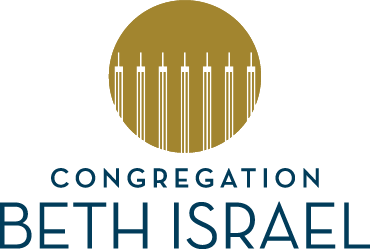“After We Mourn”

“After We Mourn”
From the desk of Rabbi David Lyon
At a shiva house (a mourner’s house), the mitzvah (commandment) is to comfort the mourners. We bring food, we offer them a plate or a drink, and we expect them to do nothing for themselves that we can do for them. We certainly don’t accept their offer of hospitality, and we never take food from a shiva house to our own even if there’s too much food in the refrigerator. Our conversation is about the deceased and how we remember him or her, and what a blessing his or her memory will be. We exhibit only sympathy and empathy during our time with them.
This past week has been a time of significant mourning for the Floyd family and the African American community. They’re grieving, gathering and preparing to accompany their loved one to his final resting place. After the funeral next Tuesday, in Houston, their “shiva” will begin. As such, our Jewish response should be to comfort and console them while we provide provisions and relief. When we do, we should express our Jewish duty to face death and mourning without superstition and without glossing over real pain. Our finest gesture is our authenticity.
This week and next, and surely for some time, it’s important that we don’t misunderstand our role and relationship with the African American community. We should refrain from speaking about ourselves when we join them, or comparing Jewish suffering to theirs; and, we should not invite their community leaders to speak to our communities. What should we do?
Without extra self-blame or criticism, it is, nevertheless, time to assess our relationship to the African-American community. It isn’t a matter of whether we have African American friends or if they have Jewish friends, because even if we and they didn’t, it doesn’t change the essential expectation that they should live in a nation that treats them under the Constitution and laws of our land as any other without regard to skin color, race, ethnicity, religion, gender, sexuality, etc. The incidents of the last week, let alone the years, has brought this to a ferocious head that is screaming for a much better response.
Peaceful protestors (not looters) are the American way to be heard when no one is listening, and when systematic change needs to happen. Our history has been altered by such peaceful protests and in retrospect it has been for the good.
We fear the things we don’t understand. “Things” are not just ideas; unfortunately, they are also people when racism blinds us to another’s humanity. When the African American community’s and our nation’s “shiva” is over, we need to begin to talk together about what we must do, and we have to listen well to the ways we can understand African Americans who are our friends, neighbors, and co-workers. It will require each and every one of us to listen and respond. New words, new deeds, and new understandings are essential parts of helping our fellow Americans feel confident about the future we will share.
In Mishneh Pirkei Avot we are taught, “The work is long, the day is short, and God is waiting; and, though we cannot complete all the work that needs to be done, neither can we desist from trying.” What difference will you make to effect systemic change? How will that change be reflected in your language, your deeds at home and work? How will you stand before God, and demonstrate that your deeds are worthy?
Jewish wisdom and Jewish obligations provide us means for a way forward. Let’s trust in what Torah teaches, “Do what is right and good in the sight of God, that it may go well with you” (Deuteronomy 6:18), and then may we know that we have lived up to our duty to our shared humanity.

